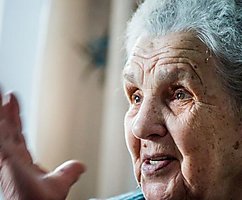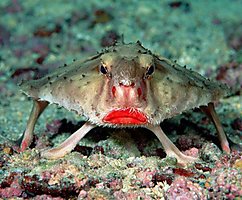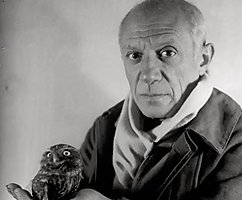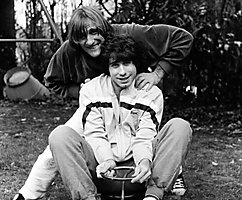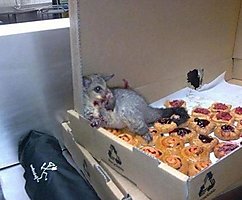The benefits of "dry law" in Russia
 Bashny.Net
Bashny.Net
Anti-alcohol regulations adopted under Mikhail Gorbachev, fresh in the memory. And the consequences of their decision in detail investigated by many authors over the last 20 years. However, Russia has already had experience of the introduction of "dry" law. And the consequences of it were equally unpleasant ...
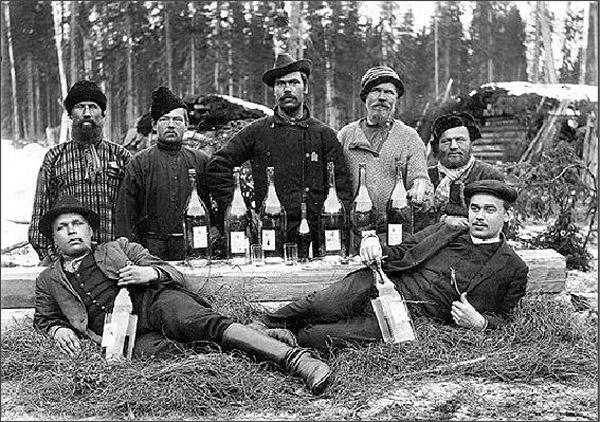
The ban on the sale of vodka, introduced in 1914, gave birth to drunken Russian pogroms, the desolation of the treasury, the massive moonshine, the use of surrogates, drug addiction in major cities. In many respects the "dry law" has contributed to the accomplishment of the two revolutions of 1917.
In the book "Merry Russia, the twentieth century" (Moscow, publishing house "Space 2000", 2007, 1 thousand. Ind.) Gives more archival and historical data file for that period.
July 17, 1914 was followed by an order prohibiting the sale of alcohol at the time of mobilization. August 22, 1914 released a new decree of the emperor: "The existing prohibition of sale of alcohol, wine and beverages for local consumption in the empire extended until the end of the war».
How to reflect this "prohibition" on the life of the empire?
Start with the fact that the first week after the decree of August 22, was held in the wine pogroms throughout Russia. For example, only 35 provincial and county-level cities in central Russia brutal mob had smashed 230 pubs. In some localities the police fired on the rioters. For example, the Perm Governor appealed to the king to allow the sale of alcohol at least 2 hours a day "in order to avoid bloody clashes».
They were closed or redeveloped hundreds of distilleries, as a whole for the duration of the "dry law" work in them have lost 300 thousand workers. Treasury not only lost the vodka excise, but also was forced to pay compensation to owners of private enterprises. So, until 1917 for this purpose it has been allocated 42 million. Rubles.
In addition, the "dry law" sharply divided society. In the autumn of 1914 was followed by the disposal of the authorities, "the exclusive right of sale for the first category of restaurants and aristocratic clubs." Naturally, the common people - the same soldiers, workers and peasants in these "islands of prosperity alcoholic" is not allowed. That is the "dry law", to put it bluntly, was intended only for the common people.
The government, seeing that such an order to incite "class struggle," went back on their word, and October 10, 1914 to allow local authorities to establish the procedure itself or ban the sale of alcohol. The first to respond to this initiative, Petrograd and Moscow City Duma, achieving the complete cessation of all alcoholic beverages. But in general, the total sale of alcohol concerned only 22% of provincial cities and 50% of the county - the rest was allowed the realization of wine castle 16 degrees and beer.
Sale of vodka was resolved in frontline - it supplied the soldiers and officers.
"Prohibition", oddly enough, not much impact on productivity growth - in 1915, on average, it grew by only 5-7%, and then, as they maintained statistics, rather than at the expense of workers sobering, and at the expense of improve discipline in wartime (and that absenteeism dropped by 23%).
In 1916, the breech monopoly brought to the treasury of all 51 million. Rubles - about 1, 5% of the budget. For comparison: in 1913 breech monopoly on vodka accounted for 26% of the budget. Russia's budget, and so went to pieces because of the military spending has been quite bled white.
Peasant same weight (as she was then almost 85-90% of the population) has become massively drive the moonshine. Nobody did not know the exact numbers produced in home-brew. Estimates ranged from 2 to 30 million. Buckets (ie from 24 to 60 mln. Liters). And the production of home-made beer - the product of the lead at the time (moonshine were at a small fraction of the population), and to evaluate anyone even had not occurred.
A typical picture of drunkenness in the village can be seen from the notes A.I.Chernyatsova officer, a member of the World, after the hospital is on the "Amendment of Health" in his family estate in the Orel region:
"December 12, 1916. Two days ago we frequented by peasants from the nearby villages of Oparin and Repev Skazina. Drunk enough that barely moving their tongues. Arrogant, self-confident, not afraid of anything - neither God nor the king! They demanded to give them in the use of the old park.
I categorically refused, they insisted straschaya me 'Red Rooster ».
At night, loaded all the weapons, barricaded himself in one of the rooms, pre-ordered board up the windows on the first floor.
In the villages, no order. Everywhere drunken muzzle, everywhere you can buy moonshine. In order to get money for booze, sell everything, even the roofs of their homes. I think that the forest is mine, and want to put on the brew. A year or two ago, it was possible to safely pass through the streets of the villages. Now everything has changed dramatically: can easily stripped, beat and even a stab. And all this - the middle of broad daylight.
December 16, 1916. Last night, it turns out, burned my neighbors Shingarev. All - of Ivan, his wife Elizabeth Andreyevna, children - 16-year-old Sofia, 12-year-old Elena and 10-year-old Nicholas.
Park cut down the whole (per night!), Scored all the cows and horses, smashed everything they could not carry. All the attackers were drunk, even there - in the ashes - with a drinking moonshine seized. Three of the attackers were frozen to death, comrades forgot about them.
January 5, 1917. My cup is full, all leaving. The last straw was the events of last night, when I was very nearly nailed to the wall with pitchforks. Thank God that was not taken aback, rebuffed. He shot 15 rounds, one filled up to the death of three wounded.
I write already sitting in the train "Eagle-Moscow": at high speed skipping village saw all the same - evil look peasants, drunken curses and drunken whirlwind ».
In the cities, the population began to move en masse to the use of surrogates. For example, in the north-western regions of the Russian production of lacquer and varnish in 1915, compared with 1914 year increased by 520% (!) For the first and 1575% (!!!) for the second. In the central European provinces is an increase of 2320% and 2100%, respectively.
In addition to paint and varnish people drink alcohol-based products from pharmacies. In Petrograd, for example, in the first year of the war of the 150 pharmacies were sold such fluids in terms of pure alcohol 984,000 liters (lotions and painkillers). The pharmacies were queues of drunks.
"Lipatov Pharmacist selling poison disguised as vodka. The district court sentenced him to 6 years in prison. From his use of poison 14 people died. An autopsy and chemical analysis found poisoned with a mixture of denatured alcohol, kerosene and essential oil. This mixture is sold under the name "Riga Balsam". According to witnesses, the trade in these "balms" was conducted at the pharmacy, "touted as the fair", "- wrote in 1915, the newspaper" Provincial deal ».
As the country continues to rage drunken pogroms. So, in 1915 in Barnaul drunken crowd of thousands of recruits stormed wine warehouse, and then the whole day town bully. On the suppression of the riots were thrown into military units. As a result, 112 conscripts were killed.
In the night from May 28 to May 29, 1915-like pogrom in Moscow. It was initiated by the anti-German sentiments - when the townspeople looted and killed everyone and everything with German roots - from the offices to the people. On this night, the crowd sacked Schuster wine warehouses, and then she began to break into the private apartments of Germans and kill them. Only the day May 29 police and troops were able to subdue the rioters.
Naturally, the peasants also began to withhold supplies from the bread to the state - it was necessary for the production of moonshine. In particular and for this reason the government was forced in December 1916 to enter the surplus appropriation system (violent seizure of grain did not come up with the Bolsheviks). Moonshine persecuted of all that is necessary - rotten fruit, potatoes, sugar. These home-made drinks are called "kumyshka", "sleepy", "gvozdilka", "Kinder Surprise", "smoke", "bigot," etc.
By the summer of 1916 the sugar practically disappeared from circulation. It was impossible to find even in expensive restaurants in Moscow and Petrograd.
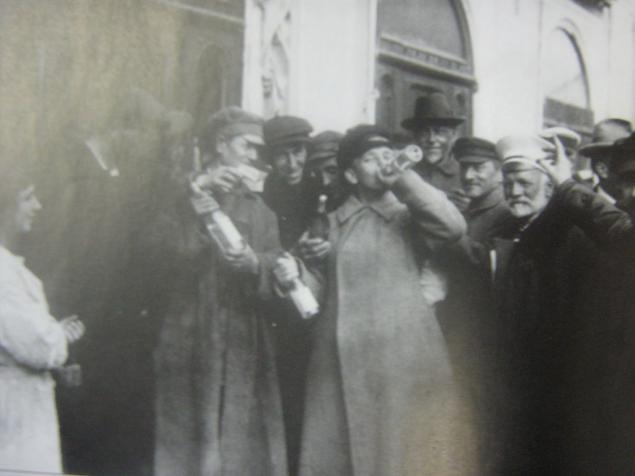
Finally, it gave birth to the first World War, a terrible wave of drug abuse - especially in large cities. Already in 1915, the Greeks and Persians settled in the Russian supply of opium, and the Entente Allies - cocaine. In Moscow, as a result of drug addiction habits domostroevskih almost did not survive, and intelligent Petrograd, on the contrary, took hold of "virtual reality." By the end of 1915 through the streets of the capital it was afraid to walk in the evenings, and Petrograd firmly took the leading place in the level of crime in Russia per capita. The special contribution made to the criminal world city sailors. According to reports the police, in 1916 they accounted for 40% of all crimes. The Governor-General of Kronstadt Viren wrote in the Naval Staff in September 1916: "Fortress - shaped powder keg. We judge the men convicted of the crimes alleged to shoot them, but it does not reach the goal. Eighty thousand in court do not give! »
Perhaps it is the introduction of "dry law" was one of the reasons was soon an accomplished February, followed by the 1917 October Revolution. Secretary General Mikhail Gorbachev's anti-alcohol law is likely, too, was one of the reasons for the fall of his empire. The historical lesson of these two events is that the people in Russia legally should drink plenty to direct aggression inside their society, and not outside - on the foundations of power. "Drunk Russian - stable Russia!" - This slogan should hang in the offices of those in power.
Source Your text to link ...

The ban on the sale of vodka, introduced in 1914, gave birth to drunken Russian pogroms, the desolation of the treasury, the massive moonshine, the use of surrogates, drug addiction in major cities. In many respects the "dry law" has contributed to the accomplishment of the two revolutions of 1917.
In the book "Merry Russia, the twentieth century" (Moscow, publishing house "Space 2000", 2007, 1 thousand. Ind.) Gives more archival and historical data file for that period.
July 17, 1914 was followed by an order prohibiting the sale of alcohol at the time of mobilization. August 22, 1914 released a new decree of the emperor: "The existing prohibition of sale of alcohol, wine and beverages for local consumption in the empire extended until the end of the war».
How to reflect this "prohibition" on the life of the empire?
Start with the fact that the first week after the decree of August 22, was held in the wine pogroms throughout Russia. For example, only 35 provincial and county-level cities in central Russia brutal mob had smashed 230 pubs. In some localities the police fired on the rioters. For example, the Perm Governor appealed to the king to allow the sale of alcohol at least 2 hours a day "in order to avoid bloody clashes».
They were closed or redeveloped hundreds of distilleries, as a whole for the duration of the "dry law" work in them have lost 300 thousand workers. Treasury not only lost the vodka excise, but also was forced to pay compensation to owners of private enterprises. So, until 1917 for this purpose it has been allocated 42 million. Rubles.
In addition, the "dry law" sharply divided society. In the autumn of 1914 was followed by the disposal of the authorities, "the exclusive right of sale for the first category of restaurants and aristocratic clubs." Naturally, the common people - the same soldiers, workers and peasants in these "islands of prosperity alcoholic" is not allowed. That is the "dry law", to put it bluntly, was intended only for the common people.
The government, seeing that such an order to incite "class struggle," went back on their word, and October 10, 1914 to allow local authorities to establish the procedure itself or ban the sale of alcohol. The first to respond to this initiative, Petrograd and Moscow City Duma, achieving the complete cessation of all alcoholic beverages. But in general, the total sale of alcohol concerned only 22% of provincial cities and 50% of the county - the rest was allowed the realization of wine castle 16 degrees and beer.
Sale of vodka was resolved in frontline - it supplied the soldiers and officers.
"Prohibition", oddly enough, not much impact on productivity growth - in 1915, on average, it grew by only 5-7%, and then, as they maintained statistics, rather than at the expense of workers sobering, and at the expense of improve discipline in wartime (and that absenteeism dropped by 23%).
In 1916, the breech monopoly brought to the treasury of all 51 million. Rubles - about 1, 5% of the budget. For comparison: in 1913 breech monopoly on vodka accounted for 26% of the budget. Russia's budget, and so went to pieces because of the military spending has been quite bled white.
Peasant same weight (as she was then almost 85-90% of the population) has become massively drive the moonshine. Nobody did not know the exact numbers produced in home-brew. Estimates ranged from 2 to 30 million. Buckets (ie from 24 to 60 mln. Liters). And the production of home-made beer - the product of the lead at the time (moonshine were at a small fraction of the population), and to evaluate anyone even had not occurred.
A typical picture of drunkenness in the village can be seen from the notes A.I.Chernyatsova officer, a member of the World, after the hospital is on the "Amendment of Health" in his family estate in the Orel region:
"December 12, 1916. Two days ago we frequented by peasants from the nearby villages of Oparin and Repev Skazina. Drunk enough that barely moving their tongues. Arrogant, self-confident, not afraid of anything - neither God nor the king! They demanded to give them in the use of the old park.
I categorically refused, they insisted straschaya me 'Red Rooster ».
At night, loaded all the weapons, barricaded himself in one of the rooms, pre-ordered board up the windows on the first floor.
In the villages, no order. Everywhere drunken muzzle, everywhere you can buy moonshine. In order to get money for booze, sell everything, even the roofs of their homes. I think that the forest is mine, and want to put on the brew. A year or two ago, it was possible to safely pass through the streets of the villages. Now everything has changed dramatically: can easily stripped, beat and even a stab. And all this - the middle of broad daylight.
December 16, 1916. Last night, it turns out, burned my neighbors Shingarev. All - of Ivan, his wife Elizabeth Andreyevna, children - 16-year-old Sofia, 12-year-old Elena and 10-year-old Nicholas.
Park cut down the whole (per night!), Scored all the cows and horses, smashed everything they could not carry. All the attackers were drunk, even there - in the ashes - with a drinking moonshine seized. Three of the attackers were frozen to death, comrades forgot about them.
January 5, 1917. My cup is full, all leaving. The last straw was the events of last night, when I was very nearly nailed to the wall with pitchforks. Thank God that was not taken aback, rebuffed. He shot 15 rounds, one filled up to the death of three wounded.
I write already sitting in the train "Eagle-Moscow": at high speed skipping village saw all the same - evil look peasants, drunken curses and drunken whirlwind ».
In the cities, the population began to move en masse to the use of surrogates. For example, in the north-western regions of the Russian production of lacquer and varnish in 1915, compared with 1914 year increased by 520% (!) For the first and 1575% (!!!) for the second. In the central European provinces is an increase of 2320% and 2100%, respectively.
In addition to paint and varnish people drink alcohol-based products from pharmacies. In Petrograd, for example, in the first year of the war of the 150 pharmacies were sold such fluids in terms of pure alcohol 984,000 liters (lotions and painkillers). The pharmacies were queues of drunks.
"Lipatov Pharmacist selling poison disguised as vodka. The district court sentenced him to 6 years in prison. From his use of poison 14 people died. An autopsy and chemical analysis found poisoned with a mixture of denatured alcohol, kerosene and essential oil. This mixture is sold under the name "Riga Balsam". According to witnesses, the trade in these "balms" was conducted at the pharmacy, "touted as the fair", "- wrote in 1915, the newspaper" Provincial deal ».
As the country continues to rage drunken pogroms. So, in 1915 in Barnaul drunken crowd of thousands of recruits stormed wine warehouse, and then the whole day town bully. On the suppression of the riots were thrown into military units. As a result, 112 conscripts were killed.
In the night from May 28 to May 29, 1915-like pogrom in Moscow. It was initiated by the anti-German sentiments - when the townspeople looted and killed everyone and everything with German roots - from the offices to the people. On this night, the crowd sacked Schuster wine warehouses, and then she began to break into the private apartments of Germans and kill them. Only the day May 29 police and troops were able to subdue the rioters.
Naturally, the peasants also began to withhold supplies from the bread to the state - it was necessary for the production of moonshine. In particular and for this reason the government was forced in December 1916 to enter the surplus appropriation system (violent seizure of grain did not come up with the Bolsheviks). Moonshine persecuted of all that is necessary - rotten fruit, potatoes, sugar. These home-made drinks are called "kumyshka", "sleepy", "gvozdilka", "Kinder Surprise", "smoke", "bigot," etc.
By the summer of 1916 the sugar practically disappeared from circulation. It was impossible to find even in expensive restaurants in Moscow and Petrograd.

Finally, it gave birth to the first World War, a terrible wave of drug abuse - especially in large cities. Already in 1915, the Greeks and Persians settled in the Russian supply of opium, and the Entente Allies - cocaine. In Moscow, as a result of drug addiction habits domostroevskih almost did not survive, and intelligent Petrograd, on the contrary, took hold of "virtual reality." By the end of 1915 through the streets of the capital it was afraid to walk in the evenings, and Petrograd firmly took the leading place in the level of crime in Russia per capita. The special contribution made to the criminal world city sailors. According to reports the police, in 1916 they accounted for 40% of all crimes. The Governor-General of Kronstadt Viren wrote in the Naval Staff in September 1916: "Fortress - shaped powder keg. We judge the men convicted of the crimes alleged to shoot them, but it does not reach the goal. Eighty thousand in court do not give! »
Perhaps it is the introduction of "dry law" was one of the reasons was soon an accomplished February, followed by the 1917 October Revolution. Secretary General Mikhail Gorbachev's anti-alcohol law is likely, too, was one of the reasons for the fall of his empire. The historical lesson of these two events is that the people in Russia legally should drink plenty to direct aggression inside their society, and not outside - on the foundations of power. "Drunk Russian - stable Russia!" - This slogan should hang in the offices of those in power.
Source Your text to link ...
Tags
See also
The laws of karma, bringing to life the order and in the soul — harmony
He stated or let slip?
Do you think that what is happening in the picture?
The return of Paul Miller
Allow me to explain: "It is not in the EU and the Schengen area ..."
Underworld of Los Angeles era of Prohibition
If brave chipmunks were in the days of Prohibition ...))
Figures from the truth of life
While mom was engaged in cleaning, the child decided to impose its own order ... The truth of life, familiar to all moms!
7 useful lessons that we received from Apple
